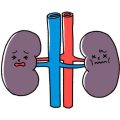Introduction to Case Management in UK Primary Care
Case management is a cornerstone of British primary care, serving as a structured approach to coordinate health services for individuals with complex, long-term conditions. At the heart of this system are General Practitioners (GPs), who act not only as medical providers but also as coordinators of care. In the context of long-term rehabilitation journeys, GPs play a pivotal role in navigating patients through the often fragmented landscape of health and social care. Their responsibilities extend beyond diagnosis and treatment; they ensure that patients receive consistent support, timely interventions, and access to multidisciplinary teams. This collaborative approach helps streamline communication between physiotherapists, occupational therapists, community nurses, and social workers. By doing so, case management in UK primary care addresses both the clinical needs and the practical challenges faced by patients on their path to recovery, ultimately promoting better health outcomes and enhancing quality of life.
Identifying Patients in Need of Long-Term Rehab
For GPs working within the UK’s primary care system, effective case management starts with accurately identifying patients who would benefit from long-term rehabilitation. This process is nuanced, requiring a blend of clinical judgement, established referral pathways, and adherence to national guidelines. Typical patient profiles that prompt consideration for coordinated rehab include those with chronic conditions such as stroke, COPD, heart failure, progressive neurological disorders (like MS or Parkinson’s disease), and complex musculoskeletal injuries. GPs also look out for frail older adults at risk of falls or hospital readmission.
Common Referral Pathways in Primary Care
In the UK, referral pathways for long-term rehab are structured but allow for flexibility based on local services. Initial identification might occur during routine consultations, annual reviews for long-term conditions, or following an acute event (e.g., hospital discharge after surgery). The table below summarises common routes GPs use to initiate ongoing rehabilitation:
| Referral Pathway | Example Scenario | Typical Outcome |
|---|---|---|
| Direct GP Referral | Patient presents with mobility decline post-stroke | Referred to community neuro-rehab team |
| Multidisciplinary Team (MDT) Meeting | Complex elderly patient flagged by district nurse | Joint care plan with physio and OT input |
| Hospital Discharge Planning | Post-orthopaedic surgery patient needs continued therapy | GP coordinates follow-up and community services |
| Self or Carer Referral (via NHS 111/online) | Chronic pain patient seeks support outside clinic hours | GP review followed by referral to pain management programme |
Criteria Used by GPs for Identification
The decision to initiate coordinated rehab is guided by both objective criteria and holistic assessment. Key factors include:
- Functional Impairment: Measured using tools like the Barthel Index or Timed Up and Go Test.
- Disease Progression: Worsening symptoms despite optimal medical therapy.
- Psycho-social Needs: Social isolation, carer strain, or safeguarding concerns.
- Risk of Hospitalisation: Frequent admissions or A&E attendances.
- Patient Goals: Expressed desire for independence or specific rehabilitation outcomes.
The Role of Clinical Guidelines and Local Protocols
NICE guidelines and local Integrated Care Board protocols provide a framework but encourage tailored decisions based on each patient’s context. Regular training and shared learning sessions help GPs stay up-to-date with evolving best practice for identifying those most likely to benefit from sustained intervention.
This systematic approach ensures that patients who need long-term rehab are recognised early, opening the door for timely, coordinated support throughout their recovery journey.
![]()
3. The GP’s Role: Coordination and Continuity
Within the UK’s primary care landscape, GPs act as the cornerstone of case management, orchestrating the complex rehabilitation journeys for patients with long-term conditions. As central coordinators, GPs ensure that the patient’s pathway is both coherent and continuous, bridging gaps between NHS services, local community providers, and specialist teams.
Central Point of Contact
GPs frequently serve as the first port of call for patients re-entering or navigating the healthcare system. They gather a holistic understanding of medical history, personal circumstances, and evolving needs. This comprehensive insight enables GPs to create and update personalised care plans that are realistic and sensitive to the patient’s context.
Managing Multidisciplinary Collaboration
The British model emphasises multidisciplinary teamwork. Here, GPs coordinate regular communication between physios, occupational therapists, social workers, district nurses, and hospital consultants. Through shared care records and structured case reviews—often discussed at MDT (multi-disciplinary team) meetings—GPs keep everyone informed and ensure no aspect of care is overlooked.
Ensuring Seamless Transitions
Transitions between different phases of rehabilitation—such as moving from hospital discharge to community-based services—are particularly vulnerable points in a patient’s journey. GPs play a proactive role by making timely referrals, sharing up-to-date clinical information, and following up on appointments or interventions. This vigilance reduces fragmentation, minimises delays in therapy, and supports smoother handovers across the NHS and partner organisations.
Championing Continuity of Care
Continuity is a hallmark of effective primary care in the UK. Patients value seeing the same GP throughout their rehabilitation process; this fosters trust and allows subtle changes in condition or circumstance to be picked up early. By maintaining regular contact—either through face-to-face appointments, telephone check-ins, or digital consultations—GPs ensure that evolving needs are promptly identified and addressed.
Ultimately, the GP’s coordination role underpins not only clinical outcomes but also the patient’s confidence in their journey through an often fragmented health system. Their ability to navigate NHS structures while keeping the individual at the centre exemplifies the best of British general practice.
4. Multi-Disciplinary Teams and Community Collaboration
In the context of primary care case management for long-term rehabilitation, collaborative working is not simply a best practice—its a necessity. UK General Practitioners (GPs) play a pivotal role as coordinators, ensuring that patients’ complex needs are met through seamless integration with NHS rehabilitation services, social care, and the voluntary sector. This approach leverages the unique expertise of each stakeholder to deliver holistic, patient-centred outcomes.
Key Players in Collaborative Rehabilitation
Effective coordination relies on clear communication channels and shared goals among diverse teams. Below is an overview of the main collaborators involved in long-term rehab journeys:
| Stakeholder | Role in Rehabilitation | Typical Interaction with GPs |
|---|---|---|
| NHS Rehabilitation Services | Deliver specialist therapies (e.g., physiotherapy, occupational therapy, speech & language therapy). | Receive referrals, provide progress updates, co-develop care plans. |
| Social Care Teams | Support daily living needs, housing adaptations, and personal care. | Liaise regarding social assessments, arrange home visits, coordinate discharge planning. |
| Voluntary Sector Organisations | Offer peer support, advocacy, befriending schemes, and community-based activities. | Share community resources information, signpost patients to appropriate support groups. |
| GPs (Primary Care) | Central point of contact; monitor overall health and coordinate multidisciplinary input. | Initiate referrals, chair multi-disciplinary meetings (MDTs), maintain oversight of the patient journey. |
The Mechanics of Collaboration: MDT Meetings and Information Sharing
A cornerstone of successful rehab case management is the Multi-Disciplinary Team (MDT) meeting. Here, GPs and allied professionals regularly review progress and adjust plans collaboratively. Secure digital platforms—such as NHSmail or integrated electronic health records—facilitate timely information exchange while respecting data protection protocols. This ensures everyone has up-to-date insights into a patient’s status and can respond swiftly to changing needs.
The Role of Community Networks
Beyond formal healthcare structures, community networks play a significant role in supporting rehabilitation. Voluntary organisations like Age UK or Mind provide tailored services that help bridge gaps between clinical care and everyday life. GPs frequently signpost or refer patients to these local resources to enhance their recovery journey.
Cultural Sensitivity and Personalisation in Case Management
An essential element of collaboration in the UK context is recognising individual backgrounds and preferences. Culturally sensitive approaches ensure that case management is not just clinically effective but also personally meaningful—whether this means engaging faith-based organisations or adapting communication styles for diverse communities.
5. Challenges in Managing Long-Term Cases
Despite the best intentions and efforts of GPs, managing long-term rehabilitation cases within primary care comes with a host of challenges specific to the British context. One of the most frequently cited barriers is prolonged waiting times for access to specialist rehab services. This delay can be particularly problematic for patients recovering from stroke, major surgery, or those living with progressive conditions such as multiple sclerosis or Parkinson’s disease. Such waiting periods risk undermining patient motivation and can lead to setbacks in recovery.
Resource Constraints in Primary Care
Another critical issue is the persistent strain on NHS resources. General practices are often operating at or beyond full capacity, balancing acute medical needs alongside complex, ongoing case management. Limited time per consultation, administrative burdens, and staff shortages mean that GPs may struggle to provide the ideal level of support and follow-up required for patients undergoing lengthy rehabilitation processes. This reality sometimes results in fragmented communication between primary care teams and specialist services.
Regional Disparities and Access Inequality
The availability of rehabilitation services varies considerably across regions in the UK. Urban centres might have relatively easy access to multidisciplinary rehab teams, physiotherapists, occupational therapists, and community-based programmes. In contrast, rural areas can face significant gaps in provision, forcing patients to travel long distances or wait longer for appointments. These regional disparities create inequity in patient outcomes and put additional pressure on local GPs who must navigate these logistical hurdles on behalf of their patients.
Socio-Economic Factors
Socio-economic status also plays a role in shaping the rehab journey. Patients from lower-income backgrounds may have less flexibility to attend appointments due to work or caring responsibilities, and they may lack access to private transport or digital resources for remote consultations. GPs are often left advocating for additional support or working creatively within these constraints to ensure continuity of care.
Ongoing Adaptation Required
The cumulative effect of these challenges means that GPs must constantly adapt their approach to case management. Whether it’s leveraging community networks, utilising digital health tools where possible, or acting as persistent advocates within the NHS system, British GPs continue to demonstrate resilience and resourcefulness in coordinating long-term rehabilitation journeys under pressure.
6. Patient-Centred Approaches and Self-Management
At the heart of effective case management in UK primary care lies a patient-centred approach. General Practitioners (GPs) play a pivotal role in empowering patients to take an active part in their own rehabilitation journeys, particularly when dealing with long-term conditions. This empowerment is achieved through a blend of shared decision-making, personalised care planning, and robust encouragement of self-management strategies.
Shared Decision-Making: A Core Principle
UK GPs are guided by NHS principles to ensure that patients are not just passive recipients of care but active collaborators. During consultations, GPs engage patients in open discussions about treatment options, expected outcomes, and potential challenges. By exploring patient preferences and values, GPs tailor rehabilitation plans that align with individual lifestyles and goals. Shared decision-making fosters trust and ensures that interventions are both clinically appropriate and personally meaningful.
Personalised Care Planning
Developing a care plan is a collaborative process involving the patient, their family or carers, and other members of the multidisciplinary team. These plans typically outline rehabilitation goals, anticipated milestones, support resources, and contingency arrangements for setbacks. In the UK context, care planning is dynamic—reviewed regularly to accommodate changes in health status or personal circumstances. This flexibility allows for responsive adjustments that keep the patient at the centre of their rehabilitation pathway.
Promotion of Self-Management Strategies
Empowering patients to manage aspects of their condition independently is fundamental to long-term success. GPs provide education on symptom monitoring, medication management, lifestyle modifications, and coping techniques tailored to individual needs. Many practices offer group sessions or digital resources to reinforce these skills. The emphasis on self-management not only improves clinical outcomes but also enhances confidence and resilience, reducing unnecessary reliance on healthcare services.
The Role of Technology and Community Resources
Modern UK primary care leverages technology—from apps for medication reminders to online physiotherapy tutorials—to support self-management outside surgery walls. GPs also signpost patients to local charities, support groups, or exercise classes, creating a network of community-based resources that bolster ongoing rehabilitation efforts.
A Culture of Partnership
Ultimately, the UK GP’s approach to case management in rehabilitation is rooted in partnership. By actively involving patients in every stage—from goal setting to reviewing progress—GPs nurture autonomy and sustain engagement throughout the often lengthy rehab journey. This patient-centred ethos continues to shape best practice across British primary care settings.
7. Measuring Success and Looking Forward
Assessing the effectiveness of case management in primary care, particularly for long-term rehabilitation journeys, requires a robust framework grounded in evidence and local context. NHS England has established a suite of quality indicators aimed at evaluating how well GPs and primary care teams coordinate ongoing rehabilitation. These indicators often focus on patient-reported outcomes, continuity of care, reduction in unplanned admissions, and timely access to allied health professionals.
NHS England’s Quality Indicators
Central to measuring success are tools such as the National Rehabilitation Outcomes Collaborative (NROC) metrics and the Quality and Outcomes Framework (QOF). These allow practices to benchmark progress in areas like personalised care planning, shared decision-making, and integration with social services. The regular use of these metrics not only supports accountability but also guides targeted improvements in service delivery.
Patient Outcomes: Beyond Clinical Metrics
While clinical data remains important, the current drive is towards holistic measures—such as patient activation scores, self-management capabilities, and quality of life assessments. This shift reflects an understanding that successful rehabilitation involves more than symptom control; it includes fostering independence, psychological wellbeing, and meaningful participation in daily life. Patient feedback surveys and focus groups are increasingly used to capture these broader outcomes within UK primary care settings.
Challenges in Data Collection
The practical realities of data collection remain a challenge for many GP surgeries. Variability in electronic health record systems, time constraints, and resource limitations can hinder comprehensive monitoring. However, ongoing digital transformation initiatives across the NHS aim to streamline these processes, making it easier for frontline staff to gather meaningful data without excessive administrative burden.
Future Directions: Towards Integrated Rehabilitation Pathways
The future of case management in primary care will likely be shaped by greater integration across health and social care boundaries. Pilot projects in England are exploring multidisciplinary teams embedded within general practice, closer collaboration with community rehab services, and increased use of digital health tools for remote monitoring. There is also a growing emphasis on co-production with patients—actively involving them in designing their own rehabilitation pathways.
Conclusion: Sustained Commitment to Improvement
Ultimately, the journey towards more effective case management in primary care is ongoing. By refining quality indicators, prioritising patient-centred outcomes, and embracing innovation in integrated care delivery, UK GPs can continue to drive better long-term rehabilitation results for their patients. Sustained investment in training, technology, and collaborative models will be essential as the NHS evolves to meet complex rehabilitation needs into the future.


